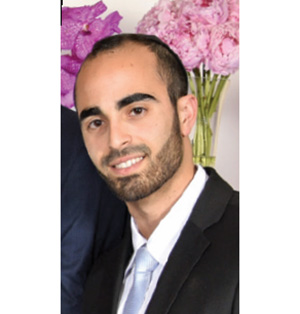
We’ve probably all experienced sleepless nights, engaged in worrying about something regarding the impending future. From big exams, conference meetings, doctors’ appointments, travel plans, court dates, etc., there could be many instances in life that may have provoked worry and anxiety within us, in which sleeping the night before was just not an option, as much as we would’ve liked it to be.
Avraham Avinu also had something to theoretically worry and be anxious over: Hashem requested that he bring his son Yitzchak up as a sacrifice. Did Avraham sleep the night before this big test? The pasuk says, “And Abraham arose early in the morning” [to conduct and fulfill Hashem’s request]. Rav Yaakov Galinsky asks, what is the pasuk teaching us by telling us that Avraham woke up early? He says that this indicates that Avraham woke up after a full night’s sleep! (Vehigadta, Bereishit, p. 230). Avraham didn’t just doze off for a few moments, or lie in his bed agonizing, worrying and thinking about what may happen the following day. He slept like a baby, as if he had nothing to worry about, as if whatever would happen would be perfectly fine, no matter what it would be.
No, this wasn’t an easy test. Sacrificing Yitzchak was not a piece of cake in the least, and knowing that he would have to do so in theory should have stirred up a volcanic eruption of anxiety and fear in Avraham. Let’s think about it: Avraham Avinu was the personification of someone who truly loved to do chesed. He loved helping, healing, bringing people under his shade and warmth. He craved the welfare of other people so much so that in a state of excruciating pain [third day since his brit milah] he was nevertheless basically begging Hashem to send him guests so he can do hachnasat orchim. But it goes even more than that. Yitzchak wasn’t just another person, he was Avraham’s cherished son, whom he waited one hundred years for. Imagine the amount of love he showered onto this child, how he cared for him, and gave him his all. Yitzchak followed in the ways of his father; Avraham must have “shepped” so much nachas from him! Avraham’s essence was a giver, a model of chesed and love, and then he is asked to sacrifice the child he waited for this long…and yet, he slept like a baby. Avraham wasn’t a callous person. Standing on the top of the mountain, altar built, with Yitzchak tightly bound, Avraham is holding the knife to be used for the slaughter. And the Midrash tells us that as Avraham was standing over his son to kill him “there were tears in his eyes [of believing he is about to kill his own son] but great joy in his heart” [over fulfilling the request of Hashem].
We see this idea as well in reference to David Hamelech. David Hamelech was living a life of what should have been complete misery: his own son Avshalom turning against him and his kingdom, surrounded by adversaries such as Shaul Hamelech and Achitophel who had joined Avshalom’s camp, who sought to kill David. David Hamelech is constantly running for his life, hiding, taking cover, escaping to foregin places unprepared, with no security. Yet, he confidently exclaims, “I lay down and slept; I awoke, for Hashem will support me” (Tehillim, 3:6). How did he sleep? How was such a feat even possible? Rav Galinsky (ibid) explains that this is because he testified about himself, “I swear that I calmed and quieted my soul like a baby on its mother” (Tehillim 131:2). David’s level of trust in Hashem was so immense that he had no worries—like a baby that trusts its mother.
How can we on some level sleep better and calm ourselves down amongst the worries we may have? David Hamelech said he “quieted himself like a baby.” Why does he need to make this comparison? Why didn’t he just say he calmed himself down? I thought that perhaps David Hamelech is teaching us a technique of how to sleep like a baby, or better yet, how to practically work on and utilize bitachon in Hashem: to make ourselves into somewhat of a baby. A baby doesn’t think ahead. A baby doesn’t worry about the impending. A baby has no sense of bad. Rather, a baby is total trust. It knows it will be taken care of, it knows it can rest and sleep in peace. Indeed, on the one hand we need to be ambitious, driven to pursue our goals, and accomplish our missions and daily affairs. While on the other hand we need to go to the opposite extreme and let ourselves become like a baby: to understand that we too can be in a state of trust, and to feel that, yes, we will be taken care of.
Binyamin Benji is a graduate of Yeshivas Rabbeinu Yitzchak Elchanan, and Wurzweiler School of Social Work. He currently learns in Lakewood, and is the author of the Sephardic Congregation of Paramus’ weekly Torah Talk. He can be reached at benjibenji26@gmail.com.










